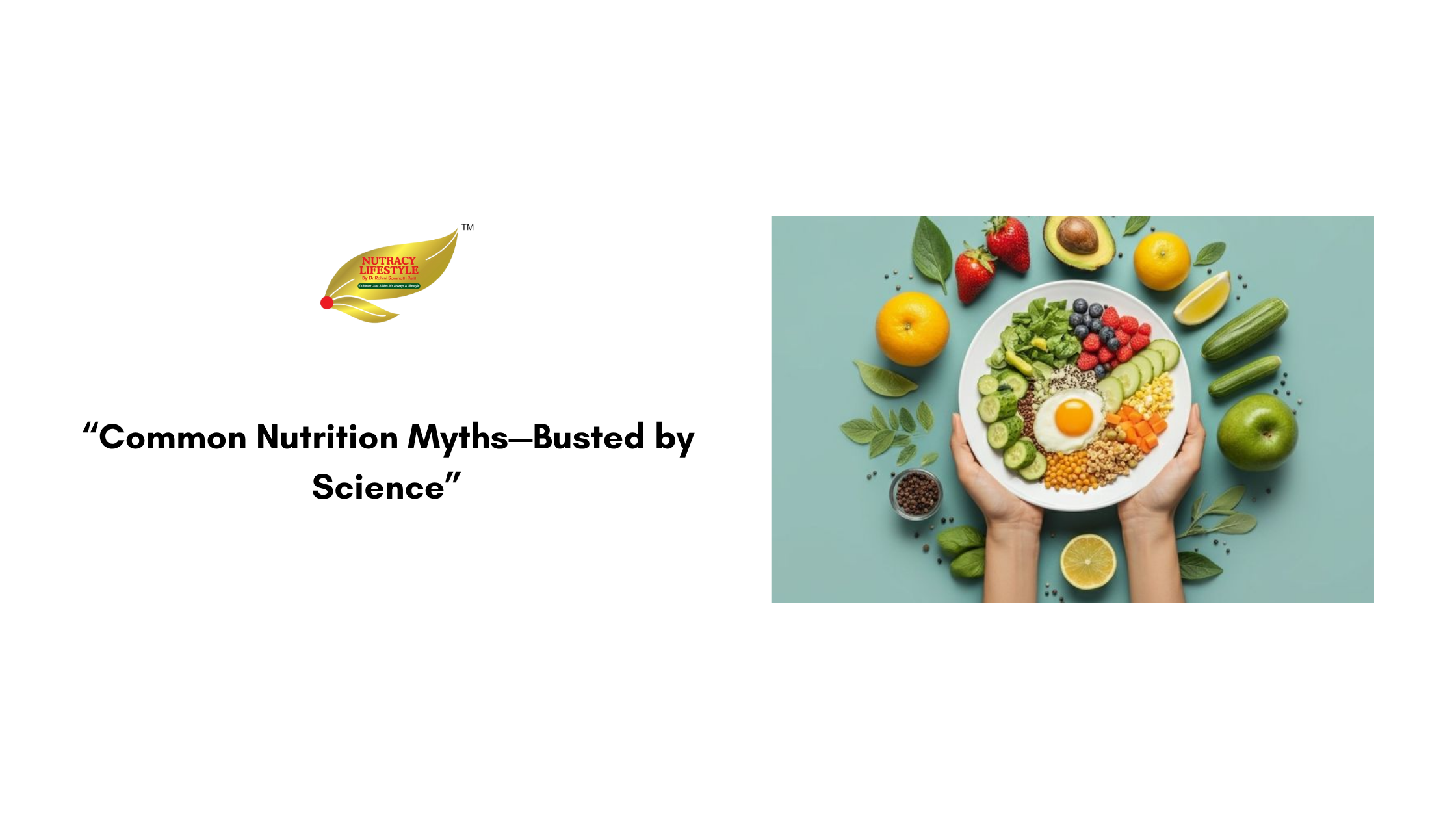In the wellness world, lies travel quicker than nutrition facts. From Hollywood diets to internet "nutrition hacks," it's simple to get caught up in the myths masquerading as reality. But let's cut through the hype and examine the leading nutrition myths and what science actually tells us.
Myth 1: Carbs Are Bad for You
Carbohydrates are always held responsible for weight gain. But the reality is, carbs are your body's favorite source of energy—particularly for the brain. The catch is, pick the right one.
Opt for: whole grains, fruits, vegetables, millets, and legumes
Steer clear of: refined carbohydrates like white bread, packaged snacks, and sweet cereals
Myth 2: Eating Fat Makes You Fat
This myth is perilously out of date. Healthy fats are critical for hormone balance, brain function, skin health, and even fat loss.
Add: nuts, seeds, avocados, coconut, cold-pressed oils, and ghee
Limit: trans fats, hydrogenated oils, deep-fried trash
Fat won't make you fat—too many calories and low-quality foods will.
Myth 3: You Must Eat Every 2 Hours
Most people think that eating many meals "speeds up metabolism," but the science indicates meal frequency is relative to the individual. What's more crucial are balanced, nutrient-dense meals that maintain blood sugar stability.
Eat 3 times a day or 5 times a day—just make it fit your life.
Myth 4: Supplements Are Better Than Food
Supplements are helpful but not a substitute for food. Whole foods have an interplay of nutrients, fiber, and antioxidants that no pill can capture.
Use supplements only when medically indicated—never as a substitute.
Myth 5: You Need a Detox to Cleanse Your Body
Detox teas, juice cleanses, and powders are hype. Your liver, kidneys, skin, and gut are your actual detox organs. Rather than starving your body, nourish it.
Consume more fiber, stay hydrated, sleep well, and limit processed foods.
Final Takeaway
Nutrition is not about extremes—about evidence and balance. And before adopting any trend for health, ask not what's popular on social media but what science has to say. Demythologizing these lies is the beginning of creating a genuinely nourishing and sustainable relationship with food.


